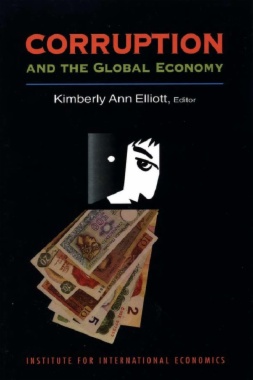The recently-adopted OECD convention outlawing bribery of foreign public officials is welcome evidence of how much progress has been made in the battle against corruption. The financial crisis in East Asia is an indication of how much remains to be done. Corruption is by no means a new issue but it has only recently emerged as a global issue. With the end of the Cold War, the pace and breadth of the trends toward democratization and international economic integration accelerated and expanded globally. Yet corruption could slow or even reverse these trends, potentially threatening economic development and political stability in some countries.
As the global implications of corruption have grown, so has the impetus for international action to combat it. In addition to efforts in the OECD, the Organization of American States, the World Trade Organization, and the United Nations General Assembly, the World Bank and the International Monetary Fund have both begun to emphasize corruption as an impediment to economic development.
This book includes a chapter by the Chairman of the OECD Working Group on Bribery discussing the evolution of the OECD convention and what is needed to make it effective. Other chapters address the causes and consequences of corruption, including the impact on investment and growth and the role of multinational corporations in discouraging bribery. The final chapter summarizes and also discusses some of the other anticorruption initiatives that either have been or should be adopted by governments, multilateral development banks, and other international organizations.
- Cover
- Contents
- Preface
- Acknowledgments
- Introduction
- 1 The Globalization of Corruption
- Why Corruption Erupted
- Globalization of the Problem
- A Global Breakthrough?
- Conclusion: Seychelles by the Offshore
- References
- I The Sources and Effects of Corruption
- 2 The Political Economy of Corruption
- What Are the Economic Opportunities for Corruption?
- What Determines Bribe Size and Incidence?
- What Are Corruption’s Consequences?
- Solutions
- Conclusions
- References
- 3 Public Officials, Private Interests, and Sustainable Democracy: When Politics and Corruption Meet
- Corruption as an Influence on Politics: Who Gets What?
- The Effects of Politics on Corruption: Who Decides?
- Comparing Political Effects
- Corruption and Sustainable Democracy
- Sustainable Democracy and Anticorruption Reform
- Conclusion
- References
- 4 The Effects of Corruption on Growth, Investment, and Government Expenditure: A Cross-Country Analysis
- Causes and Consequences of Corruption
- Empirical Analyses
- The Direction of Causality—Is It Relevant for Policy?
- Concluding Remarks
- Appendix: A Generalization of the Barro Model as a Benchmark
- References
- 5 Comments: Dani Rodrik and James E. Rauch
- Dani Rodrik
- James E. Rauch
- II Opportunities and Options for Reform
- 6 International Cooperation to Combat Corruption
- The Risks of International Commercial Corruption
- A Brief History of Early International Initiatives
- The OECD Initiative, 1989-96
- Other International Initiatives against Corruption
- Future Developments
- Final Remarks
- References
- 7 The Importance of Leadership in Fighting Corruption in Uganda
- The Roots of Corruption in Uganda
- Deleterious Effects of Corruption
- The Importance of Leadership and a Strong Civil Society
- Economic and Political Reforms
- New Plan of Action against Corruption
- References
- 8 Combatting International Corruption: The Role of the Business Community
- International Corruption in Perspective
- Corporate Codes of Conduct
- Synergy between Corporate Codes and Government Programs
- US Role: Strengths and Limitations
- 9 Comments: Vito Tanzi and Jules Kroll
- III Summary and Conclusions
- 10 Corruption as an International Policy Problem: Overview and Recommendations
- The Many Meanings of Corruption
- Sources of Corruption
- Domestic Economic Consequences of Corruption
- Political Consequences of Corruption
- Distortion of International Trade and Investment
- Domestic and Institutional Reforms to Control Corruption
- International Initiatives to Combat Corruption
- Priorities for an International Anticorruption Strategy
- References
- Appendices
- A: US Policy on Corruption
- B: Data Sources for Cross-Country Analysis of Corruption

